Category: Fleet Management
SaaS or Software as a Service is making a buzz in almost every industry, and logistics is no exception. Businesses across the globe prefer SaaS-based logistics software instead of investing in developing on-premises software that might take several months or even a year to build. To understand why this shift is happening- let’s first understand what are the problems the logistics industry is facing? And how SaaS-based applications can be a perfect solution for them.
SaaS is a mechanism of transferring software to everyone (individual or business) over the internet. In this nature of software licensing and release model, the license of the software can be availed periodically. The software is centrally introduced in the cloud, and the individual, availing SaaS access through any compatible browser.
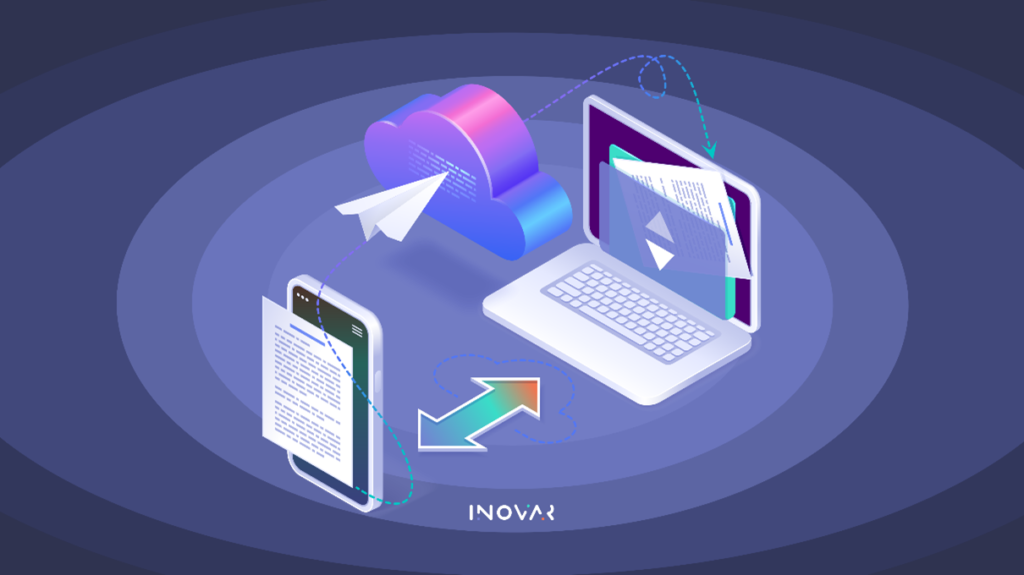
Present industry challenges:
Transportation and logistics industries are constantly struggling with challenges- like complex competition, changing customer expectations, and leveraging digitization to succeed. Lack of ‘digital culture and training is thus the biggest challenge for these companies. Attracting the right skills is one issue, but developing the right strategy is even more crucial.
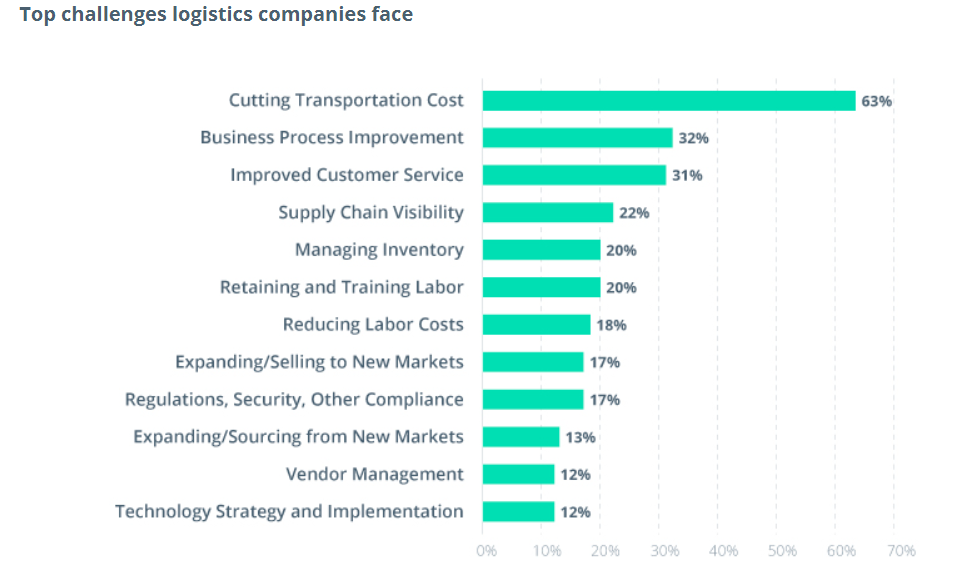
Besides, an increasingly competitive environment is another dominant factor in the mix. Some of the sector’s customers are springing logistics services of their own, and different competitors to the business are shaping out more profitable aspects of the value chain by exploiting digital technology or brand-new ‘sharing’ business models. They don’t have asset-heavy balance sheets or cumbersome existing arrangements weighing them down.
There is no other industry where so many experts ascribe vast influence on data and analytics in the next five years than transportation and logistics. There are vast possibilities to enhance performance and serve customers better, and LSPs who are part of a digitally integrated value chain can benefit from significantly increased forecasting to scale up capacity or down and plan routes. Adding machine learning and artificial intelligence techniques to data analytics can deliver truly dynamic routing.
Business solutions
One of the most promising ways for transportation companies to improve their workflows and find new ideas for business growth is using a custom SaaS system. These systems guarantee more agile data processing and greater automation of operations than out-of-the-box solutions. They also allow companies to build only the features they need.
From streamlining processes to increasing visibility in the supply chain, their pertinence has grown in quality. According to Statista, 87% of logistics and supply chain firms are tapping into cloud-based solutions to facilitate transportation management and gain an edge in an ever-changing marketplace.
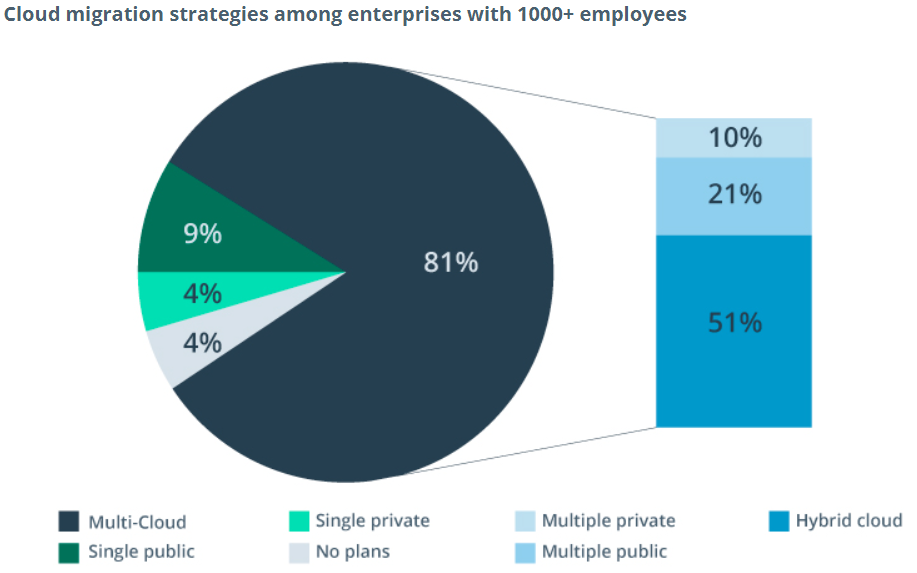
Businesses can optimize SaaS solutions to automate the logistics workflow and free employees from performing routine tasks connected with paperwork.
Logistics is a sphere of multitasking and multiprocessing. Robust SaaS solutions are essential for tracking details and conducting analysis, which helps businesses detect issues and optimize their work. They are designed to simplify and manage complicated logistics problems by taking an integrated, end-to-end approach. The functionality enables optimal route planning, reductions in fuel costs, and significant improvements in asset utilization
.

Logistics companies gain real-time visibility from SaaS solutions into logistics processes and data, assisting businesses to keep their operations under command. SaaS logistics solutions support companies to reach a more predictable supply chain, while companies can associate in the cloud to cooperate efficiently.
SaaS solutions empower operators to access high-level route planning abilities on demand, encouraging them to avoid the high capital cost investment and the in-house IT staffing required for superior systems integration. We can directly scale them up or down according to business needs without infrastructure changes as they are delivered as a service.
Inovar optimized SaaS solution for logistics
Inovar joined hands with fleet operators to manage their logistics operations and apply technology for making their workflow automated. With an AI-powered SaaS solution, we gave fleet operators ways to predict demand, optimize vehicle usage, and give them real-time tracking of their vehicles from both fleet operators and consumers.
Our first aim was to bring all stakeholders Markets, Warehouses, Traders, Ports, and Truckers under a single virtual platform and allow them to trade on-demand within an open marketplace.
Inovar brought Microsoft Azure IoT and machine learning services within a customized application that could build a connected platform for fleet operators. The solution could not only gather data efficiently but generate intelligence as it was used. Another remarkable feature was analytics and event hubs that captured data used in a Databricks platform to generate insights. Using these insights, system booking, scheduling, predictive maintenance cycles became 70% easier than before.
Finally, the system went live with 1000+ vehicles, and the logistics client started to reap ROI from multiple avenues. Within 3 months, the efficiency of their operations improved by 30% with better security, high scalability, and faster availability from the end-user.
Summing up, we can say that cloud logistics automation is beneficial to all participants in the supply chain. It allows you to easily solve complex problems, so its popularity will only grow every year. As a logistics software development partner, we solve many standard and custom needs of the transportation industry from Business as well as Technology perspectives. After many years spent in the logistics domain, our dedicated development team learned specific details and gained experience that can be used to effectively help you with any of your logistics software that you need to develop.
InovarTech is ready to improve your automation experience. With our brilliant forms and streamlined workflows, you will be fit to tackle process technologies and know-how to adapt them to your institution. Reach out to us today to get started. You can take comfort because we know process automation and how to implement them effectively. Let us deliver high-volume processes to your doorstep.
It’s been a while we are talking about Connected Vehicle and their benefits in the Logistics sector.
- Vehicle Utilization and Routing
- Maintenance
- Real time Tracking etc
But with increased technology advancement, people are looking at the next level features .
First in the list from the business standpoint, is safety both from Vehicle and Driver standpoint. Calculating Driver fatigue, which can happen in many ways.
- Smart devices/wearables.
- Monitoring Eye movement and actions with real time camera feed and machine learning.
- Dash cams to monitor traffic and alerting driver.
Automated scheduling not only based on lowest cost or distance also checking for best fit. Most fleet management software today consider idle trucks and minimum distance to allocate trucks for the job. But today with machine learning, the software can take care of Vehicles already on route to the specific location, Vehicle’s home location and their preference of load and destination. Even it can plan ahead to create a connected trip which can get the driver back to his home location so that they can enjoy time with their families during their Time off period.
Finally the most important piece in the puzzle to solve is multi modal shipments. For cost benefits people use multiple mediums such us Road, sea and trains to deliver their goods in a single shipment. Current software mostly handle point-to-point loads. But for logistics companies that poses a very big challenge. New softwares with the machine learning can even suggest just like the google map which route take for most efficient and low cost routes.
Example of Multi Modal Logistics
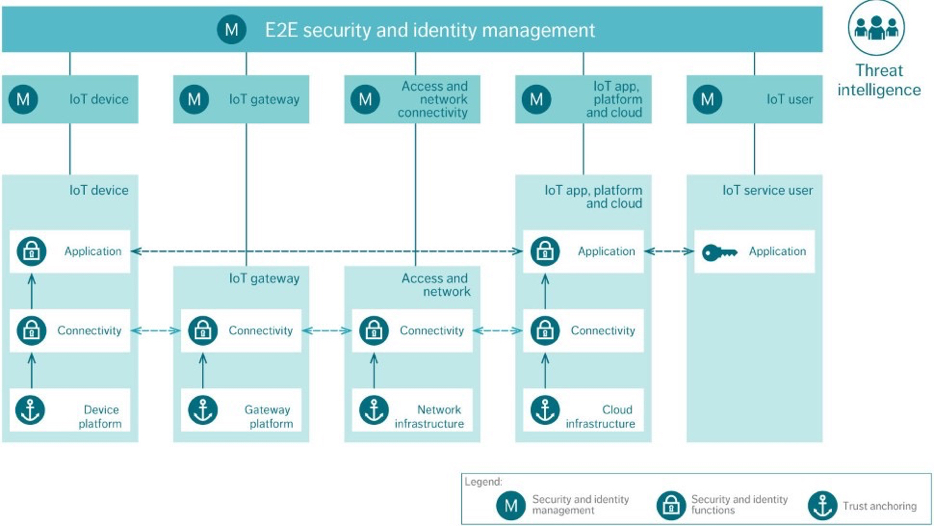
On the technology side, Next wave of software’s are focusing more on securing the software so that they are less prone to hacks. But with tight security portability of the software becomes very limited. So companies are trying find out the best solution where people can use the choice of their technology but get the best in class software they need to be successful.
Machine Learning is become a large factor in this whole eco system. We talked about usage of machine learning just a while back, but machine learning is now also used to predict demand and making sure enough # of vehicles are available in that region to handle the load. That’s good for business as well as it reduces are adhoc nature of drivers job making sure their lives are also more predictable.
General Scenario
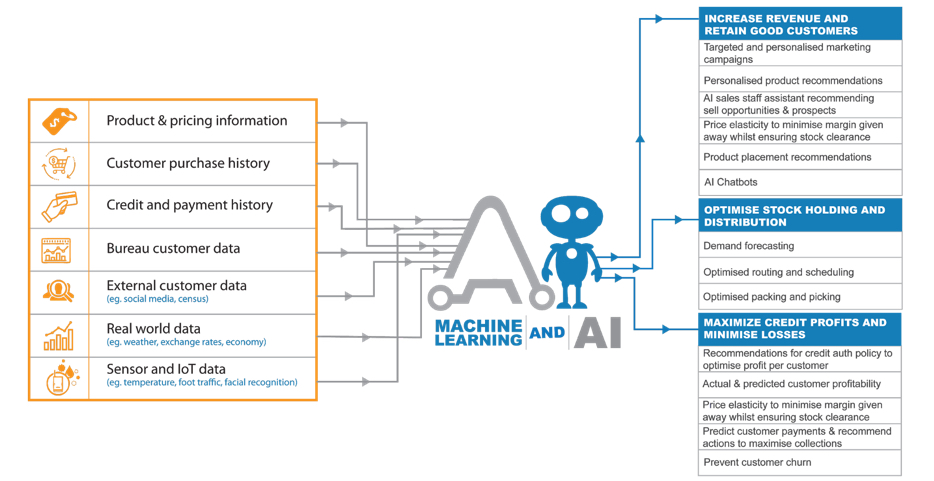 Finally getting towards a more integrated system, Right now logistics software run independently focusing mostly on one thing. But that is not enough, broken experiences between their booking, invoicing, logistics and CRM system is making it a very painful experience for them and most importantly for their customers. Creating a software which works and integrates well to the existing platforms of the operator is going to be key and will bring the required digital transformation in this space
Finally getting towards a more integrated system, Right now logistics software run independently focusing mostly on one thing. But that is not enough, broken experiences between their booking, invoicing, logistics and CRM system is making it a very painful experience for them and most importantly for their customers. Creating a software which works and integrates well to the existing platforms of the operator is going to be key and will bring the required digital transformation in this space